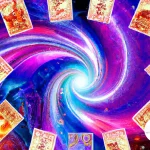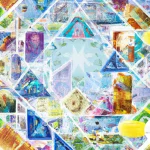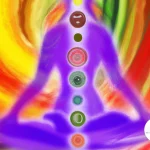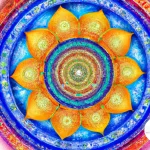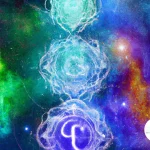Numerology, the belief in the mystical significance of numbers, has intrigued people throughout history. From ancient philosophers to influential artists, famous figures from various fields have practiced and incorporated numerology into their lives. But who were these individuals, and how did numerology shape their beliefs and decisions? In this article, we will delve into the lives of these famous figures, exploring how numerology played a role in their journeys and contributed to their legacies. Join us as we uncover the hidden connections between numbers and the lives of the remarkable individuals who practiced this ancient art.
Ancient Practitioners
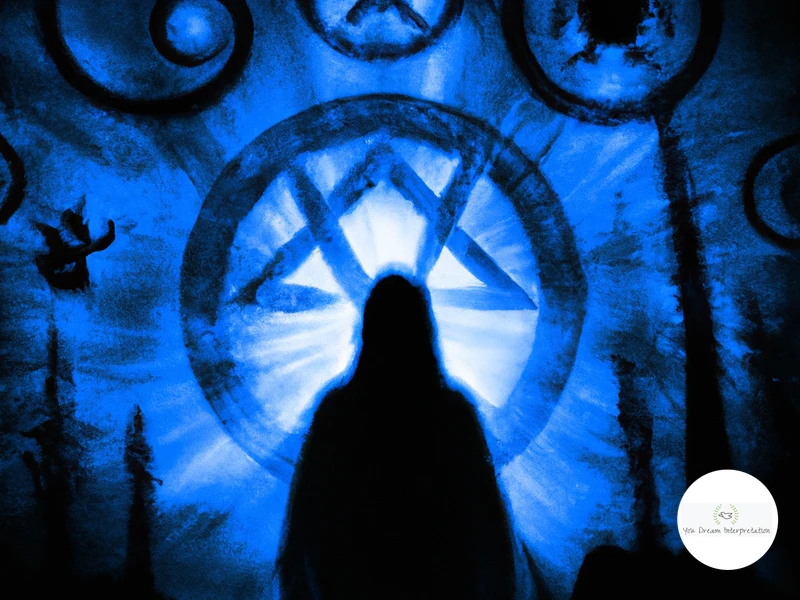
Ancient Practitioners of numerology have left a lasting impact on our understanding of this mystical art. One prominent figure is Pythagoras, a Greek philosopher and mathematician who believed that numbers held the key to unlocking the secrets of the universe. He developed the concept of the birth day numbers and their influence on career choices. Emperor Nero, known for his extravagant rule over the Roman Empire, was also fascinated by numerology. He consulted with astrologers and numerologists to guide his decision-making, believing that numbers held the power to foretell the future. Another famous figure, Julius Caesar, used numerology to determine auspicious dates for important military campaigns and political decisions. These ancient practitioners laid the foundation for the belief in the power of numbers and their influence on human destinies.
Pythagoras
Pythagoras, an influential Greek philosopher and mathematician, is renowned for his contributions to numerology. He believed that numbers were the key to understanding the universe and held mystical significance. Pythagoras developed the concept of the Pythagorean numerology system, which assigns specific meanings and vibrations to numbers. He believed that numbers were the building blocks of reality, and that each number had a unique energy and influence. Pythagoras also believed in the power of numbers to reveal insights about one’s personality and destiny. According to his teachings, the date and time of a person’s birth hold great significance in determining their life path and the wisdom revealed through numerology. His influence on numerology is still felt today, as many people continue to study and practice his methods to gain a deeper understanding of themselves and their relationships with others, such as numerology compatibility in friendships. Pythagoras’ belief in the power of numbers has shaped the field of numerology and continues to inspire those seeking to unlock the secrets of the universe through the study of numbers.
Emperor Nero
Emperor Nero, known for his extravagant rule over the Roman Empire, was deeply fascinated by numerology. He firmly believed that numbers held the power to shape not just personal destinies, but also the fate of nations. Nero was known to consult with astrologers and numerologists to guide his decision-making, seeking their insights on matters of war, governance, and even personal relationships. He would often study the numerical values associated with his name and titles to gain a deeper understanding of his own destiny. Nero’s obsession with numerology extended to the construction of his lavish palace, the Domus Aurea, where he incorporated intricate numerical patterns and symbolism into the architecture. Despite his tyrannical rule, Nero’s belief in numerology showcases his desire for control and his quest for a higher understanding of the universe.
Julius Caesar
Julius Caesar, the renowned Roman statesman and military general, was not only known for his political prowess but also for his belief in the power of numerology. Caesar firmly believed that numbers held great significance and could influence the course of events. He consulted with expert numerologists to determine the most auspicious dates for important military campaigns and political decisions. It is said that Caesar used numerology to guide his actions, ensuring that he had the favor of the gods and the alignment of cosmic forces on his side. He believed that by understanding the numerical vibrations and frequencies of specific dates, he could increase his chances of success. This belief in the power of numerology served as a guiding principle in Caesar’s life, allowing him to make strategic decisions that would shape the course of the Roman Empire. The influence of numerology on his decision-making processes showcases the intricate relationship between numbers and the lives of even the most powerful figures in history.
Influential Artists
Influential artists throughout history have not only captivated audiences with their creativity but also delved into the realm of numerology. One such artist was Leonardo da Vinci, whose legendary artwork was infused with hidden numerical symbolism. He believed that numbers held a profound connection to the harmony and balance found in art and nature. Mexican artist Frida Kahlo, known for her vibrant and introspective self-portraits, also incorporated numerology into her work. She painted with recurring motifs and numbers that represented her personal experiences and inner struggles. Additionally, the surrealist master Salvador Dali used numerology as a means of connecting the physical and spiritual realms in his iconic paintings. These influential artists showed the world that numerology could be a source of inspiration and a unique way to express complex emotions and ideas through art.
Leonardo da Vinci
Leonardo da Vinci, the renowned Italian artist, scientist, and polymath, was not only a master of various disciplines but also had a deep interest in numerology. Known for his meticulous attention to detail, da Vinci believed that numbers held profound significance in the natural world and used numerology to inform his artistic and scientific endeavors. He often incorporated mathematical and numerical patterns in his works of art, such as “The Last Supper” and the “Vitruvian Man.” For da Vinci, numbers were not just a means of measurement but a way to uncover the hidden harmony and divine order within the universe. His fascination with numerology wasn’t limited to his artistic pursuits; he also applied numerical calculations and patterns in his scientific observations. Da Vinci’s exploration of numerology showcases the interconnectedness of art, science, and mathematics in his quest to understand the world around him.
Frida Kahlo
Frida Kahlo, the renowned Mexican artist, is known for her captivating self-portraits that reflect her innermost thoughts and emotions. What many may not know is that numerology played a significant role in Kahlo’s life and artwork. Born on July 6, 1907, Kahlo’s birth date holds numerological significance. The number 6 is associated with creativity, beauty, and harmony, aligning perfectly with Kahlo’s artistic endeavors. Additionally, her birth path number, calculated by reducing her birth date to a single digit, is 9. This number signifies spiritual growth, compassion, and artistic expression. Kahlo’s paintings often incorporated symbolic numbers, such as the number 3, which represents unity and wholeness. Her use of vibrant colors, such as red and blue, also carries numerological significance. Red symbolizes passion, creativity, and vitality, while blue represents intuition, introspection, and depth. Frida Kahlo’s close connection to numerology is evident in her life and artistic expression, offering a deeper understanding of the complexities behind her work.
Salvador Dali
Salvador Dali, the renowned Spanish surrealist artist, was not only known for his eccentricities but also for his interest in numerology. Dali saw numbers as a means to tap into the subconscious and access deeper truths. He believed that numbers held a mystical power that could be harnessed to create art that transcended conventional boundaries. Dali often incorporated numerological symbolism in his paintings, taking inspiration from mathematical principles and the hidden meanings behind numbers. One of his famous works, “The Persistence of Memory,” features melting clocks, which can be interpreted as a representation of the fluidity of time and the impermanence of existence. This piece showcases Dali’s fascination with the abstract concepts of time and space, which align with the philosophical aspects of numerology. Throughout his career, Dali embraced the idea of the subconscious and used numerology as a tool for self-expression, blurring the lines between reality and the fantastical. His unique approach to art continues to captivate audiences worldwide, cementing his legacy as one of the most influential artists of the 20th century.
Political Leaders
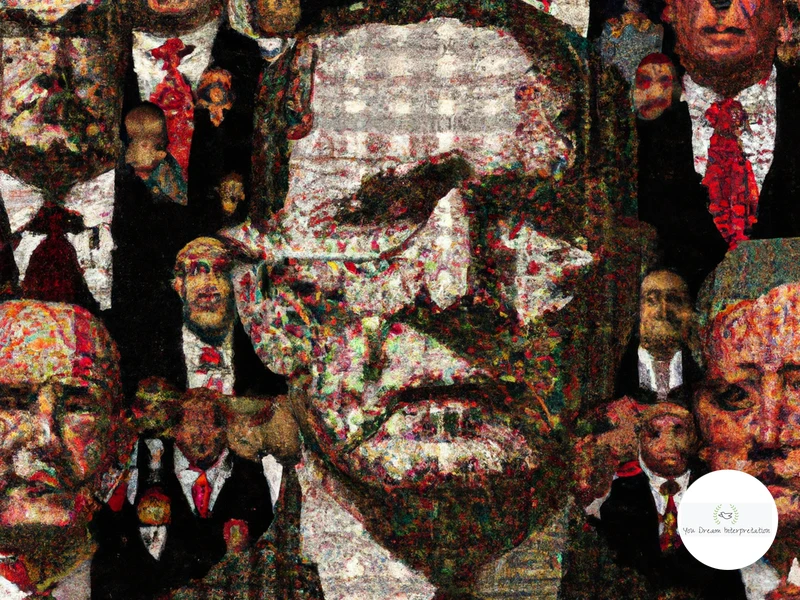
Throughout history, political leaders have also embraced numerology as a means to gain insight and make strategic decisions. One of the most revered leaders, Abraham Lincoln, was known to consult with numerologists to determine the most fortuitous timing for his speeches and important political actions. Similarly, Winston Churchill, the iconic British Prime Minister, had a keen interest in numerology and believed that certain numbers held significance in shaping his destiny. He would often analyze numerical patterns in historical events and use this information to inform his political strategies. Another influential political figure, Mahatma Gandhi, was guided by numerology in making critical decisions during India’s struggle for independence. These leaders recognized the power of numerology and how it could be applied to navigate the challenging political landscape they faced.
Abraham Lincoln
Abraham Lincoln, the esteemed 16th President of the United States, was not only known for his leadership during the American Civil War but also for his fascination with numerology. Despite his busy political career, Lincoln would often take the time to study numerological theories and apply them to his decision-making process. He believed that numbers held deep significance and could provide insight into personal and political matters. Lincoln was particularly drawn to the number seven, which he considered to be a powerful and mystical number. He believed that the number seven represented perfection and completion, and he would often seek ways to incorporate it into his speeches and policies. For example, Lincoln’s Gettysburg Address, one of his most famous speeches, contains exactly 272 words, which adds up to a multiple of seven. This intentional use of numerology highlights Lincoln’s belief in the power of numbers to convey deeper meaning. Additionally, Lincoln was known to consult with numerologists to gain insights into his own destiny and the future of the nation. Numerology played a significant role in Lincoln’s life, influencing his perspectives and decision-making processes.
Winston Churchill
Winston Churchill, the legendary British statesman and Prime Minister, was not only known for his exceptional leadership during World War II but also had a fascination with numerology. Churchill firmly believed in the power of numbers and consulted with renowned numerologists to gain insights into his political decisions and strategies. He believed that numbers held a profound influence on his life and the course of history. Churchill’s interest in numerology was not limited to personal matters; he also applied it to military planning. By analyzing numerical patterns and interpreting their meanings, Churchill sought to shape the outcome of critical battles and influence the war effort. His belief in the power of numerology added an extra layer of mysticism to his leadership style and decision-making process. This unique aspect of Churchill’s life sets him apart as not only a political giant but also a follower of the mystical world of numerology.
Mahatma Gandhi
Mahatma Gandhi, the revered leader of India’s independence movement, also had a deep interest in numerology. Gandhi believed in the power of numbers to reflect the cosmic balance and guide his decisions. He used numerology to help him make important choices, such as selecting the dates for key protests and campaigns during India’s struggle for freedom. One of the most significant numbers in Gandhi’s life was the number nine. He believed that nine represented selflessness, compassion, and universal love. This belief was manifested in his philosophy of non-violence (ahimsa) and his dedication to serving others. Gandhi’s strong connection to the number nine can be seen in various aspects of his life. For example, he often fasted for nine days as an act of penance and self-purification. Additionally, he insisted on walking nine miles a day during the Salt March, a symbolic act of protest against British taxation on salt. For Gandhi, numerology was not just a superstition, but a tool for self-reflection and aligning his actions with his core values. It was through this spiritual practice that he fostered discipline, perseverance, and unwavering commitment to his cause. Gandhi’s application of numerology in his life showcases the unique ways in which individuals have incorporated this ancient practice into their personal journeys.
Scientists and Philosophers
Scientists and philosophers throughout history have also been captivated by the realm of numerology. One such figure is Albert Einstein, the renowned physicist who revolutionized our understanding of the universe. Although primarily known for his contributions to theoretical physics, Einstein also had an interest in numerology. He believed that numbers held symbolic meaning and could offer insights into the workings of the cosmos. Another notable figure is Carl Jung, the Swiss psychiatrist and psychoanalyst. Jung not only studied the significance of numbers in dreams and the human psyche but also incorporated numerology into his theories of personality and archetypes. Lastly, we have Isaac Newton, the brilliant mathematician, and physicist. Although mainly known for his groundbreaking scientific discoveries, Newton also delved into the study of numerology and alchemy. These scientists and philosophers not only expanded our understanding of the natural world but also explored the mystical connections between numbers and the human experience.
Albert Einstein
Albert Einstein, renowned as one of the greatest scientific minds in history, also had an interest in numerology. While his primary focus was on physics and the theory of relativity, Einstein acknowledged the significance of numbers in the universe. He believed that numbers revealed a hidden order and interconnectedness in the fabric of reality. Einstein’s fascination with numerology stemmed from his belief that mathematical relationships governed the fundamental laws of nature. His pursuit of mathematical understanding led him to uncover groundbreaking theories, and he often described the beauty and elegance of mathematical equations. Although known primarily for his scientific achievements, Einstein’s appreciation for numerology highlights his holistic approach to understanding the universe. In his view, numbers were not merely arbitrary symbols but inherent features of the cosmos. Einstein’s integration of numerology and physics exemplifies his desire to explore the underlying harmony and structure that pervades the universe.
Carl Jung
Carl Jung, a Swiss psychiatrist and psychoanalyst, made significant contributions to the field of psychology. He was not only known for his groundbreaking theories but also for his interest in numerology. Jung believed that numbers held deep symbolic meaning and could provide insights into the human psyche. He explored the concept of synchronicity, which suggests that events are connected through meaningful coincidences. Jung saw parallels between his theory of synchronicity and the principles of numerology, as both emphasized the interconnectedness of the universe. He believed that numbers could act as archetypal symbols, representing fundamental psychological concepts and patterns. Jung’s fascination with numerology led him to incorporate it into his analyses of dreams, personality types, and spiritual development. He saw numerology as a valuable tool for self-discovery and understanding the intricacies of the human mind. His exploration of numerology further enriched his holistic approach to psychology and continues to inspire researchers and practitioners to this day.
Isaac Newton
Considered one of the greatest scientists of all time, was not only renowned for his contributions to physics and mathematics but also had a fascination with numerology. Newton believed that there was a divine order to the universe, and numbers played a fundamental role in unraveling its mysteries. He explored the concept of Biblical numerology, seeking hidden meanings and patterns within the scriptures. Newton also delved into numerology’s association with alchemy, aligning numbers with the elements and planetary influences. His profound interest in numerology influenced his scientific work as well. Newton saw parallels between the physical laws of nature and the underlying numerical relationships that governed them. By studying the mathematics of motion and gravity, he sought to uncover the hidden numerical patterns that governed the workings of the universe. Though Newton is primarily remembered for his scientific achievements, his exploration of numerology showcases his holistic approach to understanding the world and his deep appreciation for the power of numbers.
Conclusion
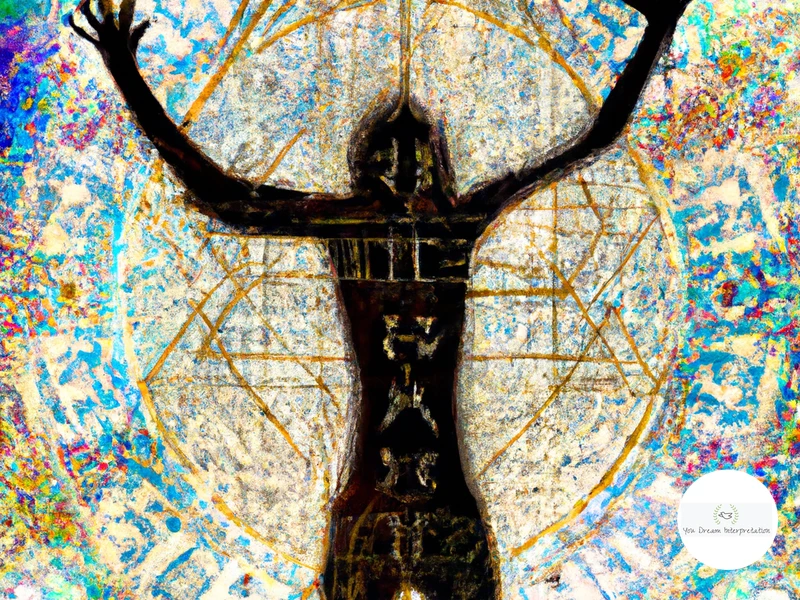
In conclusion, the practice of numerology has left an indelible mark on the lives and legacies of famous figures throughout history. From ancient philosophers like Pythagoras, who delved into the mystical significance of numbers, to influential artists like Leonardo da Vinci and Salvador Dali, who incorporated numerological principles into their art, the belief in the power of numbers has spanned centuries and disciplines. Even political leaders like Abraham Lincoln and Mahatma Gandhi, as well as scientists and philosophers like Albert Einstein and Carl Jung, found inspiration in numerology’s ability to provide insights into the human experience. Whether it was determining auspicious dates for military campaigns, gaining self-awareness through self-analysis, or finding creative inspiration, numerology has played a significant role in shaping the lives of these famous individuals. As we continue to explore the fascinating connections between numbers and human existence, we can appreciate the enduring intrigue and value of numerology in our world today.
Frequently Asked Questions
What is numerology?
Numerology is a belief system that assigns mystical and symbolic meanings to numbers. It is based on the idea that numbers have a significant impact on our lives and can provide guidance and insight into our past, present, and future.
How does numerology work?
Numerology works by examining the numerical values associated with different aspects of our lives, such as our birthdates and names. These values are then analyzed and interpreted to reveal personality traits, life path patterns, and potential future outcomes.
Can numerology predict the future?
Numerology is not meant to predict the future with certainty. Instead, it offers insights and possibilities based on the patterns and energies associated with specific numbers. It can help individuals gain a deeper understanding of themselves and make more informed decisions.
Are famous figures in history the only ones who practice numerology?
No, numerology has been practiced by people from all walks of life. While famous figures may have highlighted the practice, numerology is accessible to anyone interested in exploring the mysteries of numbers and their influence on our lives.
Is there scientific evidence to support numerology?
Numerology is not a scientifically proven practice. It falls into the realm of metaphysics and spirituality. While some individuals find personal meaning and insight through numerology, it is not considered an empirical science.
Are there different types of numerology?
Yes, there are various systems of numerology practiced across different cultures and traditions. The most common ones include Pythagorean numerology, Chaldean numerology, and Kabbalistic numerology. Each system has its own unique approach and interpretations.
Can numerology help in self-discovery and personal growth?
Yes, numerology can be a tool for self-discovery and personal growth. By understanding the patterns and vibrations associated with our birthdate and name, we can gain insights into our strengths, weaknesses, and life purpose. It can provide guidance for making positive changes and embracing our true potential.
Can numerology assist in decision-making?
Numerology can offer guidance in decision-making by providing insights into the energetic influences surrounding a particular situation or choice. By understanding the numerological aspects at play, individuals can make more informed and aligned decisions.
Is numerology compatible with other belief systems?
Numerology can be compatible with various belief systems, as it focuses on personal introspection and self-understanding. It can complement practices such as astrology, tarot reading, and spiritual teachings. However, the compatibility ultimately depends on an individual’s personal beliefs and interpretations.
Can numerology be learned and practiced by anyone?
Yes, anyone can learn and practice numerology. While it requires familiarity with numerical calculations and symbolism, numerology is accessible to individuals who have an interest in delving into the deeper meanings and influences of numbers.
References
- 10 Celebrities You Didn’t Know Are Into Numerology
- The King’s Book of Numerology, Volume 10 – Historic Icons …
Frequently Asked Questions
1. How did numerology influence Pythagoras’ teachings?
Pythagoras believed that numbers held a deep spiritual significance and that they could be used to unlock the mysteries of the universe. Numerology played a crucial role in his teachings, as he saw numbers as the building blocks of creation and a means to understand the world around us.
2. What role did numerology play in Emperor Nero’s reign?
Emperor Nero was known to consult with numerologists to guide his decision-making. He believed that certain numbers held power and significance, and he used numerology as a way to gain insight into his future actions and the potential outcomes.
3. How did Julius Caesar incorporate numerology into his leadership?
Julius Caesar was rumored to have a personal numerologist who advised him on important matters. He used numerology to make strategic decisions, select auspicious dates for military campaigns, and even influence his choice of allies.
4. In what ways did Leonardo da Vinci utilize numerology in his artwork?
Leonardo da Vinci incorporated numerology into his artwork by incorporating symbolic numbers and geometric patterns. He believed that numbers held a hidden meaning and that by using them in his paintings, he could convey deeper messages and evoke specific emotions.
5. How did Frida Kahlo’s interest in numerology manifest in her artwork?
Frida Kahlo was fascinated by numerology and often used symbolic numbers in her paintings. She believed that numbers had a profound impact on an individual’s destiny and used them to express her own struggles, emotions, and reflections on life.
6. How did Salvador Dali’s interest in numerology influence his surrealistic style?
Salvador Dali’s interest in numerology played a significant role in his surrealistic style. He believed that numbers held hidden meanings and used them as a way to create intriguing and thought-provoking imagery in his artwork.
7. Did numerology impact Abraham Lincoln’s decision-making as a political leader?
There is no concrete evidence that Abraham Lincoln actively practiced numerology. However, he did have a fascination with numbers and was known to take note of significant dates and coincidences, which may have influenced his decision-making to some extent.
8. How did Winston Churchill’s interest in numerology affect his political career?
Winston Churchill had a personal interest in numerology, particularly in relation to his own destiny. While it is unclear how much impact numerology had on his political career, he did believe in the power of numbers and saw them as guiding forces in his life.
9. Did Mahatma Gandhi incorporate numerology into his nonviolent movement?
There is no evidence to suggest that Mahatma Gandhi actively practiced numerology. However, he did have a belief in the interconnectedness of everything and may have found some resonance with numerological concepts in his approach to nonviolent resistance.
10. How did Isaac Newton’s study of numerology influence his scientific discoveries?
Isaac Newton was deeply interested in numerology and believed that numbers held a divine significance. While his study of numerology may not have directly influenced his scientific discoveries, it likely shaped his perspective on the order and harmony of the universe, which in turn influenced his pursuit of scientific knowledge.



